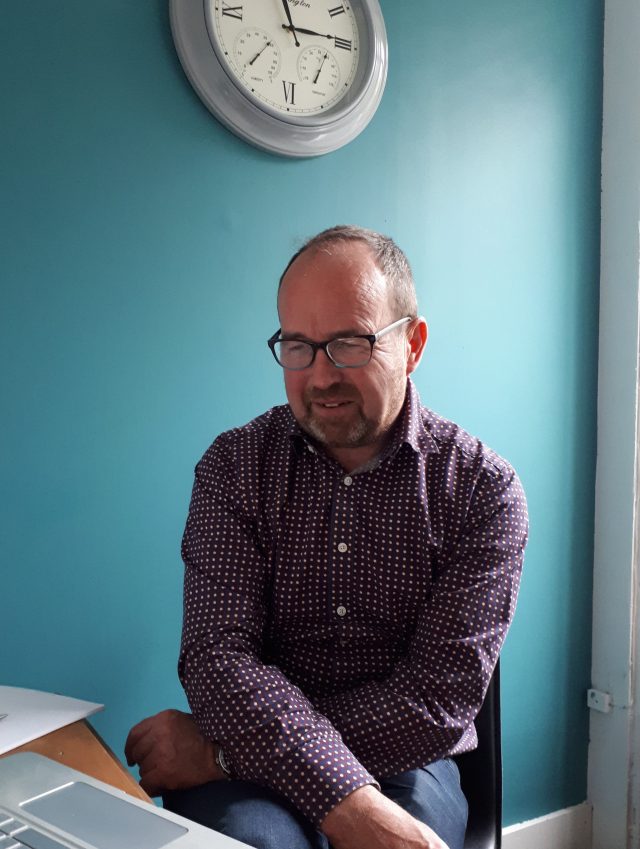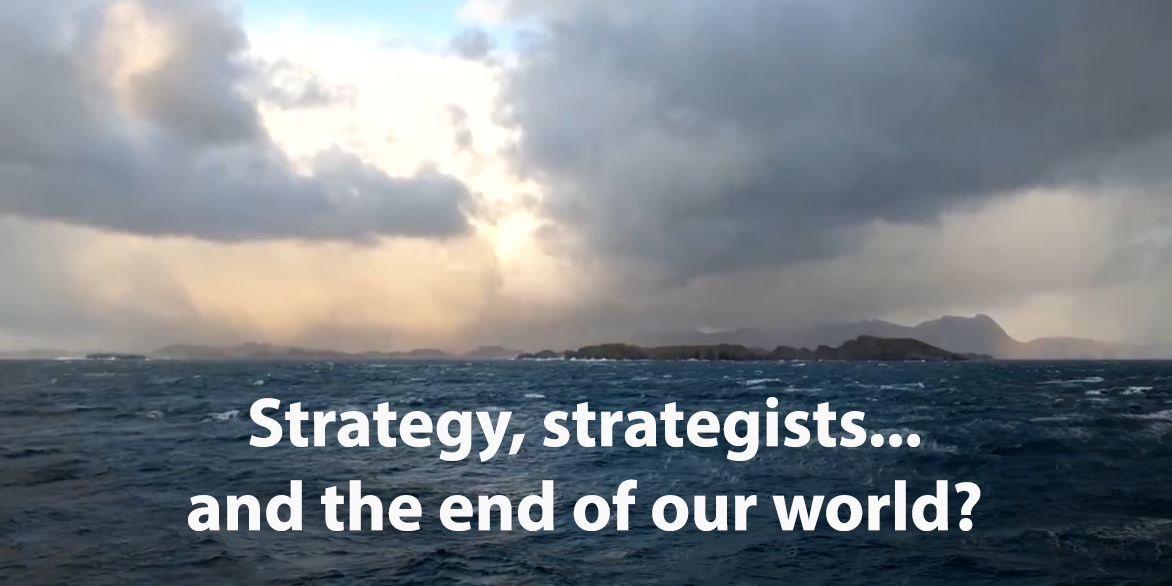What more can the strategy community do to help tackle pressing issues like climate change, and how do we harness the power of story to help us do this? StrategyStory’s Professor Donald MacLean explores further.
Strategy, Strategists and the end of our world

I remember, as a young physics student, taking a serious aversion to the second law of thermodynamics. I didn’t much like the inexorable disordering of things and the universe’s ultimate heat-death. Surely I can do something about this, I thought, and didn’t.
The clock kept ticking. Time hasn’t reversed. Black holes have not (yet) become the universe’s garbage cans.
Forty years on, as a seasoned strategist, I still don’t like the thought of heat-death . Truth be told, I like it even less. Now firmly grounded on planet earth (my mother may disagree), heat-death seems to be getting closer, much closer in fact – just round the space-time corner.
So, what am I doing about it? Almost certainly not enough.
Maybe I’m not alone. As COP27 unfolds, the stories we hear continue to suggest three things. First, that the point of no return is either fast approaching (the optimistic take), already past (the pessimistic take) or that there has been some terrible misunderstanding (the climate denial take).
So the following question is aimed at the optimists amongst us in the strategy community: are we doing enough? Whether facilitating the development of strategy, researching the process, bringing people together to tackle the big issues or holding executive responsibility for strategy in our own organisations, are we pulling together our resources to best effect to tackle the ultimate challenge – our planet’s changing climate?
About twenty-five years ago, Robert MacIntosh and I joined others who were pioneering the application of complexity theory to strategy. Why? For me, because it seemed to offer an alternative to the dreaded second law – instead of decay we see dynamic systems that spontaneously self-organize to create new order.
Later on, though still almost a decade ago, a few of us at the University of Glasgow Adam Smith Business School – myself, Robert and Ignacio Canales – hosted a well-attended mini-conference in Glasgow. The theme of the conference, under the auspices of the Strategic Management Society, was that of busting strategy out of its pre-occupation with the somewhat parochial concerns of business. Engaging instead with some of the world’s pressing issues. Climate change was mentioned specifically. Our work on complexity had fuelled our optimism that we could make a positive difference.
However, as yet, we can’t claim that we have.
But maybe there’s still time. Maybe the strategy community could really do something here. If strategy is about successfully rising to significant challenges – surely we in the strategy community have passed the point where collective inaction is unacceptable. I remember our esteemed colleague Roy Suddaby exhorting us, at the above conference, to break out of the narrow confines of our subject area, and to get involved.
Surely I can do something about this, I thought, and, this time, well, I’ve tried. Nowhere near enough – but it’s maybe a start, or at least an offering into what I hope will be a growing conversation.
Strategies flounder for two main reasons: first, the logic is somehow flawed, and second, people are not engaged. I can’t comment on the logic of the “dealing with climate change” strategy at the moment – for, as far as I can tell, anyway, there isn’t a strategy for the system in question – our planet. I can comment on the second one though – engagement, which, if we cracked it, might in turn help us crack the first issue (the absence of strategy).
So engagement – expressed as collective action – is weak for two reasons:
1. There’s no strategy that transcends the borders and silos of our planet. We (not the planet) are divided, fragmented, impotent;
2. There is not a sufficient emotional connection or commitment to collective and sustained action. Most of you will recognise these as our perennial bugbears.
Is there an answer? Well, this is where I’ve tried to honour Roy’s exhortation.
Question: What connects people, reaches the emotional engines that logic can’t always reach and drives impact?
Answer: Stories do.
In his work on narrative economics, Robert Shiller makes a highly persuasive case for the power of story. When it goes viral, it has no respect for boundaries and it really drives behaviour change. For better or for worse. At the moment, it would appear to be the latter. But that might be amenable to intervention – influencing the contagion and impact of stories is one of our most ancient pursuits.
Maybe this is where we, the strategy community could have something to offer? We have a community and connections that cross every border in the world. We have data and storytelling capabilities. We have imagination. We have some tools, like scenario-building. Could this be our moment? Could we craft a StrategyStory that helps lead us out of this crisis? That ushers in a new order from the chaos? That makes a major contribution to COP28?
I’ve no doubt that there are many highly-committed and active strategists and groups working in this area. We owe you, and I’d love to hear more. Point here is that I’d like to see more of our community join together and work on this as one.
What have we got to lose if we don’t at least try?
Everything.
What have we got to gain if we do?
Everything.
Sound interesting?
You might be interested in contributing to StrategyStory’s GameChanger community. You can sign up here to receive our free ebook.
**************************************************************************************************************************************
About Donald
world. His book has been described as ‘genius’ and ‘tour de force’ by leading international scholars. He has held appointments such as Chair of the board of SAMS Research Services Ltd., Oban as a University town and the Highlands and Islands strategy lead for the Institute of Directors. You can meet Donald here.
About StrategyStory
StrategyStory supports businesses and communities to develop strategies that work. This means strategy as collective action rather than a dusty document. We deliver through partnership programmes, online learning, workshops, seminars and public speaking. We also deliver lectures, talks and sessions on strategy and storytelling at private and public events, and host events, workshops and training in Strategy, Leadership, Entrepreneurship and Storytelling in our new studio in the Inverness Creative Academy.
If you are interested in finding out more please get in touch. hello@strategystory.co.uk


